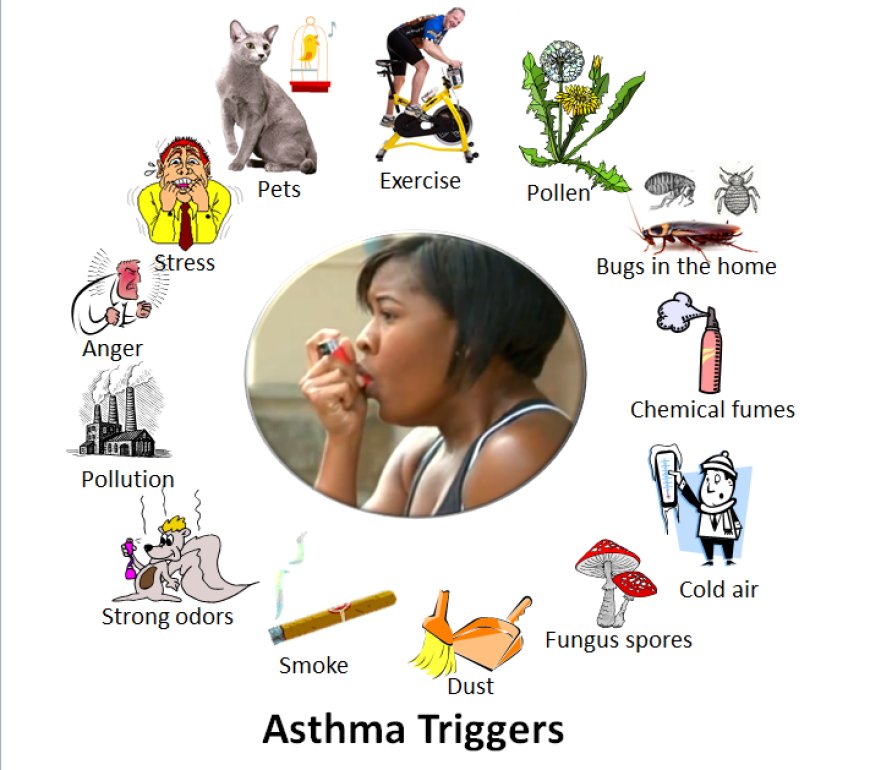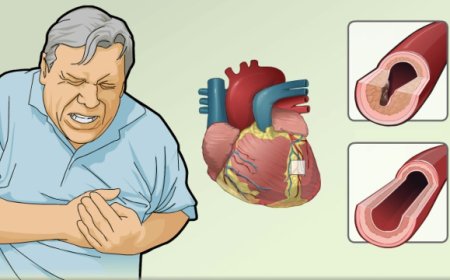Identifying Asthma Triggers

Introduction:
In India, a country known for its diverse landscapes and cultures, keeping our lungs healthy is essential. One common respiratory condition that affects many individuals is asthma. Identifying asthma triggers is crucial to managing this condition effectively. This article aims to explain what asthma triggers are, how they are classified, their causes, risk factors, types, diagnostic tests, treatments, and prevention techniques, using simple language for 10-year-old children to easily understand.
What Is Identifying Asthma Triggers? :
Asthma triggers are like secret codes that set off the "asthma alarm" in our lungs. These are things that can cause asthma symptoms or worsen existing asthma in individuals who have this condition. By identifying and avoiding these triggers, we can keep our lungs healthy and breathe easy.
Sign and Symptoms:
Asthma symptoms are like red flags that signal trouble in our lungs. These can include:
- Coughing: Like a tickle in the throat, coughing is common in individuals with asthma.
- Wheezing: Like a whistling sound, wheezing can be heard when breathing in and out.
- Shortness of Breath: Like running out of breath, individuals may feel like they can't breathe properly.
- Chest Tightness: Like a heavy weight on the chest, asthma can cause discomfort in the chest area.
How Is Identifying Asthma Triggers Classified? :
Asthma triggers can be classified into different categories based on their nature:
- Allergens: Like sneaky invaders, allergens are substances that can trigger asthma in individuals who are allergic to them. Common allergens include dust mites, pollen, pet dander, and mold.
- Irritants: Like pesky pests, irritants are substances that can irritate the lungs and worsen asthma symptoms. Common irritants include tobacco smoke, air pollution, strong odors, and household chemicals.
- Physical Activity: Like a challenging game, physical activity or exercise can trigger asthma symptoms in some individuals, especially if their asthma is not well controlled.
- Respiratory Infections: Like unwelcome guests, respiratory infections like colds and flu can trigger asthma symptoms.
Causes and Triggers:
Asthma can be caused by a combination of genetic and environmental factors. Some individuals may have a family history of asthma, making them more susceptible to this condition. Exposure to certain triggers, as mentioned earlier, can also lead to asthma symptoms.
Risk Factors with Examples:
Certain factors can increase the risk of asthma or make asthma symptoms worse, such as:
- Family History: Like passing down a trait, having parents or siblings with asthma can increase the risk.
- Smoking: Like blowing harmful smoke, smoking or being exposed to secondhand smoke can worsen asthma symptoms.
- Obesity: Like carrying extra baggage, being overweight can increase the risk of asthma.
Types of Identifying Asthma Triggers with Detailing for Each Type:
- Indoor Triggers: Like hidden invaders, indoor triggers are substances found inside homes that can trigger asthma. These can include dust, pet dander, mold, and smoke from cooking or heating.
- Outdoor Triggers: Like mischievous troublemakers, outdoor triggers are substances found outside that can worsen asthma. These can include pollen, air pollution, and smoke from burning waste.
- Exercise-Induced Triggers: Like a challenge during playtime, physical activity can trigger asthma symptoms in some individuals, especially during or after exercise.
- Cold Air Triggers: Like a chilling gust of wind, cold air can trigger asthma symptoms in some individuals.
Diagnostic Tests and Treatments:
To identify asthma triggers, doctors may conduct various tests, such as a lung function test or allergy tests, to understand the specific triggers affecting the individual. Treatment may involve using asthma medications and making lifestyle changes to avoid triggers.
Complications of Identifying Asthma Triggers Prevention Techniques:
To prevent asthma symptoms and complications, individuals can take the following steps:
- Avoiding Allergens: Like staying away from trouble, avoiding allergens that trigger asthma can help keep symptoms under control.
- Improving Indoor Air Quality: Like inviting fresh air, keeping indoor spaces clean and well-ventilated can reduce exposure to indoor triggers.
- Taking Asthma Medications: Like following the doctor's prescription, taking asthma medications as prescribed can help manage asthma effectively.
In conclusion, identifying asthma triggers is like solving a puzzle to keep our lungs healthy. By recognizing and avoiding allergens, irritants, and other triggers, individuals in India can breathe easy and enjoy an active and healthy lifestyle. By staying informed and working closely with healthcare providers, we can all take steps to protect our lungs and manage asthma effectively.
What's Your Reaction?
 Like
0
Like
0
 Dislike
0
Dislike
0
 Love
0
Love
0
 Funny
0
Funny
0
 Angry
0
Angry
0
 Sad
0
Sad
0
 Wow
0
Wow
0








































































